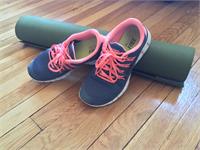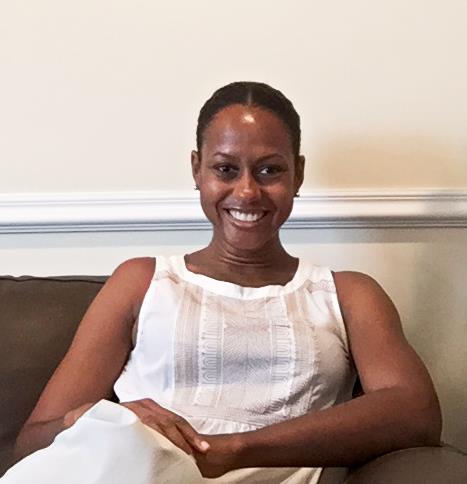Are you uncertain of what self care could look like in your life?
“If your compassion does not include yourself, it is incomplete” – Jack Kornfield
Patrice Ford Lyn, professional life coach, shares her insights into the meaning of self-care and how to sustain a personalized self-care practice.
Define Self- Care
A question popped up on my Facebook feed recently: “What’s the big deal with self-care? It seems like the new next thing. Now people are taking a shower and calling it self-care. What’s next brushing your teeth?” A flood of responses came in including:
- – It’s a way of trying to get women to not think of doing things purely for themselves as being selfish
- – In the disability community, we usually refer to self-care in terms of finding safe spaces away from abuse and ableism. ‘ Hygiene’ doesn’t need a euphemism because learning to take a shower is nothing to be ashamed of.
- – Given the people I work with, sometimes getting out of bed and brushing your teeth is the most you can do. And that counts as self-care because some people really can’t get to the next step
Clearly, opinions vary and the care that is essential for one person isn’t the same as another. We each experience the world differently, absorb traumas differently. So what is self-care? “Self-care is any activity that we do deliberately in order to take care of our mental, emotional, and physical health.” “No matter how indulgent or fancy the term may sound, self-care is crucial for our physical, emotional and mental well-being.” Self-care is about: allowing yourself to exhale, to slow down for a moment, to regain a sense of calm and presence. Giving yourself time to regroup and recharge.
Prioritize Self-Care

Self- Care Activities: Running & Yoga
People decide to prioritize self-care for a variety of reasons. Maybe they are exhausted, overextended, stressed out, and/or having health problems. What each person does to care for themselves will depend on their needs and circumstances. Some go on vacations to unplug and decompress while others have parks nearby where they walk, run or just be in nature. Many people find time with their pets relaxing and rejuvenating.
Physical activity like tennis, yoga, running, swimming is a form of self-care of choice for others. And the truth is, some people do all of these thing while others do none. Some people come to self-care without the financial means to pay for a vacation or regular massages.
Self-Care as Survival
If you are working two jobs, sleep might feel like the only self-care you can imagine. If you are in a toxic relationship, work with traumatized populations or live in stressful environments then it can be hard to figure out what type of self-care could be best or you. Having disabilities makes many experiences in day-to-day life particularly challenging and requires significant work to build in a self-care routine. For people in any of these situations, self-care is a matter of survival. So yes, a hot shower can absolutely be self-care and spending time connecting with friends is absolutely self-care. Going to that doctor’s appointment you have been avoiding or learning how to set boundaries are also forms of self-care.
When you have developed and are implementing self-care routines then you are more aware of what you are feeling . You are better able to honor your needs, manage your emotions, and be your own advocate. You ask for and accept help from others when you need it.
Self-Care Inventory
 If you want to do your own self-care inventory here are some questions that might be helpful:
If you want to do your own self-care inventory here are some questions that might be helpful:
- Are you exhausted?
- Do you feel balanced?
- Are you kind to yourself?
- How are you showing up with friends, family, coworkers, strangers, your intimate partner(s) and yourself?
- Do you feel healthy?
- Does your life feel like it is running you instead of you running it?
- Are you short tempered, depleted, or find yourself over extended?
If you are happy with your answers then you may not want to do any further exploration. However, if you decide that how you are showing up isn’t who you want to be in the world or for yourself. Then, I encourage you to begin identifying what you need and what your barriers have been. It’s the first step, but a necessary first step, to figuring out how to live with more internal peace and wellbeing.
Self-Care as Part of a Routine
 As a certified professional coach, it is my job to hold space for clients to feel safe enough to speak their truth about what they need and why it currently isn’t a part of their lives. It is not okay for me to be reckless with my energy and actions when participants need to feel safe. Being centered is not an option. My self-care is a requirement not only for me but for showing up powerfully for others. As a result, I have many tools on my toolbelt.
As a certified professional coach, it is my job to hold space for clients to feel safe enough to speak their truth about what they need and why it currently isn’t a part of their lives. It is not okay for me to be reckless with my energy and actions when participants need to feel safe. Being centered is not an option. My self-care is a requirement not only for me but for showing up powerfully for others. As a result, I have many tools on my toolbelt.
Even as a coach, self-care continues to be a work in progress. Lately, I have been in the flow of a great morning routine: meditating, doing yin yoga and taking time for silent reflection. I also have tools for when I am on the go: deep breathing, connecting with loved ones, and having short meditations. As a result, I start my day feeling clearer, kinder and more centered. I am more productive and less reactive. However, in the last few days I realized that the cardio activity that was once a regular part of my day is no longer in my routine. My next step is to figure out how to build in more cardio for both my physical and mental health.
This infographic from the Cleveland Clinic sums it up well. There are so many benefits that it just makes sense. As life changes, our needs change and the types of self-care we need may change as well. So, what do you need? Let’s figure it out.
Self-Care Workshops
Developing and Sustaining a Self-Care Practice: DC Group Coaching Series
- Series 1 Self-Care: Every Monday from 6/25, 7/2, 7/9, 7/16
- Series 1 Self-Care: Every Monday from 8/2, 8/9, 8/16, 8/23
- 14th street studio
- 7:00-8:30 pm
- Sign Up: here
I often hold group sessions on self care because it is essential to the quality of our spirit and our lives. For some people, coming to my self-care workshop is their first intentional self-care step. Others attend these workshops because they need support to find their way back to figuring out what works for them and how to commit to a plan. I help participants identify:
- what self-care means for them
- what is standing in their way of having the self-care they want
- how to manage these challenges
- how to make self-care sustainable
To find out more about Patrice and her coaching work visit www.catapultlifecoaching.com





